


"Let's rise by lifting others"




"Let's rise by lifting others"
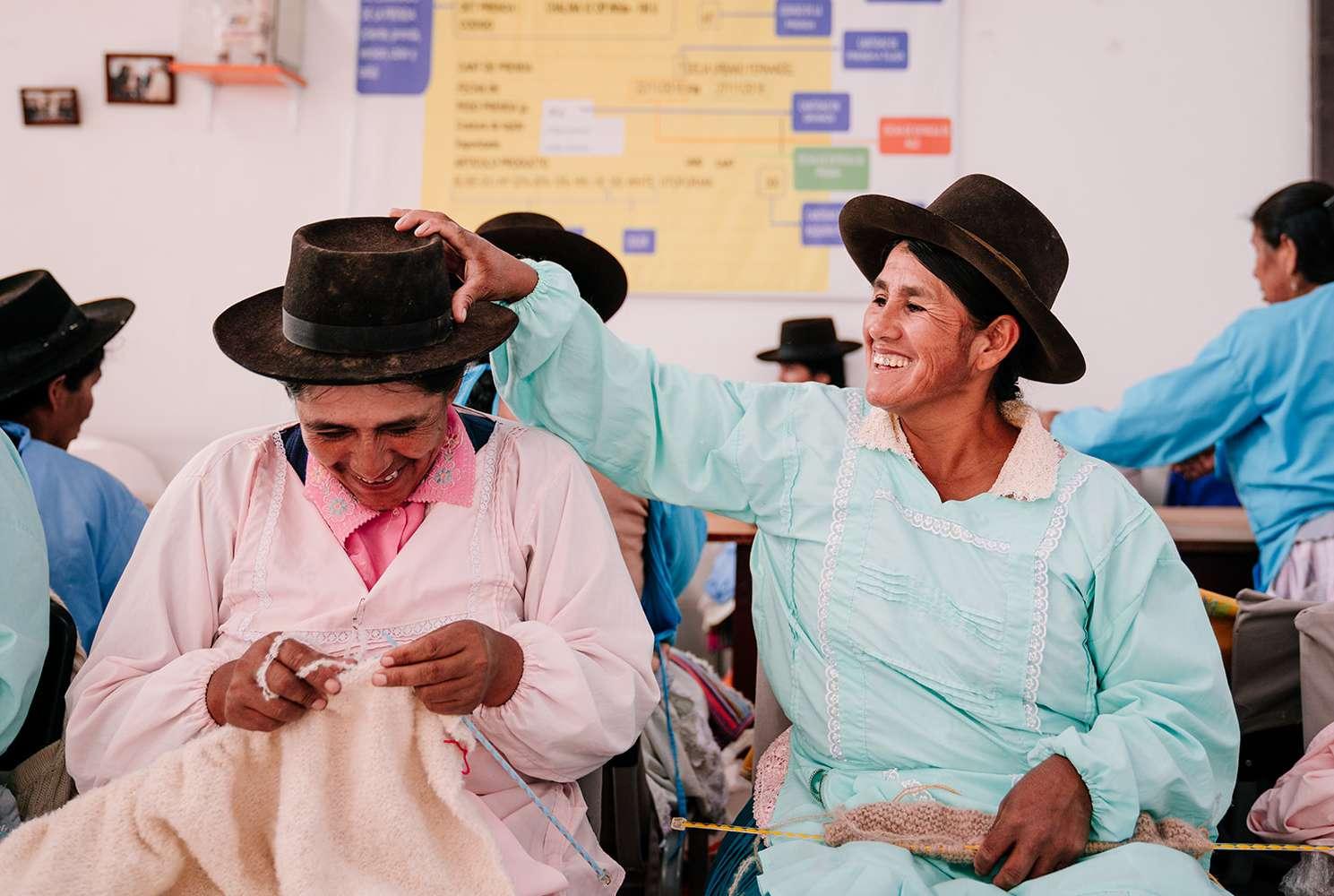
Mission Organization SDG's tackled
Why?
The main goal of Solid is to fight poverty on a long term By empowering people, by creating fair employment and fair markets, we try to improve the living conditions of disadvantaged people in Peru, India & Kenya
How?
Socially responsible commercial enterprises and non-profit organizations join their forces in order to fight against poverty, in different parts of the world With these local enterprises Solid provides employment and a positive dynamic for the whole community Profits that come out of these commercial activities in the future, will flow back to the nonprofit activities A perfect combination, because as such, external funding to the non-profit becomes unnecessary on the long run
Where?
Peru, Kenya & India
Solid



Peru - AyacuchoKenya - Kasigau corridorIndia - Ranchi -
The non-profit organization Solid was founded in 2000 by Luc Verelst, who after his international real estate career decided to give back to society Today, the next generation is running the organization with efficiency, determination and a lot of compassion The 30th April 2020 was set to be a day of celebration, marking 15 years since the creation of Solid Peru But of course COVID-19 limited travel for us all, and so, for now at least, we celebrated online
Solid helps young people, women and families to grow a solid foundation for their own future! Solid provides employment opportunities (Solid Crafts / Agriculture) and tools for empowerment (Solid Social), for people in some of the poorer regions in Peru, India and Kenya All of this, with special attention to personal development and awareness of one ' s strengths and capabilities
All the profits generated in the enterprises will be reinvested into the social projects This is now also reflected in Solid's legal structure Since 2020 Belgian legislation allows for non-profit organizations to make a profit, without profit distribution or equity benefit All commercial activities from Solid Crafts bvba were included in Solid vzw, together with the social projects The full integration and interwovenness of social enterprises and non-profit projects is Solid’s trademark It reflects Solid’s entrepreneurial mindset and its unique business model This way every client of Solid, in Solid Crafts or Solid Agriculture, contributes to a better world Team
Montefino farm (Peru)
Solid supports various Belgian social partners in their activities, in Belgium and abroad
Healthy families (Peru)
Social program for families
Solid becomes an organization with its own projects and activities, at first only in Peru
Rural programs (Peru)
Tecnical support farmers
(2007 - 2015) (2000 - 2007)
Social programs for teenage mothers Dia (Peru)
Manta (Peru) Hadithi Crafts (Kenya)
Handknitting workshop
Handwoven baskets
Solid Food (Peru)
Export of quinoa
JOVEM (Peru)
Training program rural youngsters
Paces Crafts (India)
Handicraft workshop
All of the projects above are still active at present, except for the Healthy families project The rural programs evolved into Solid Food
*Full
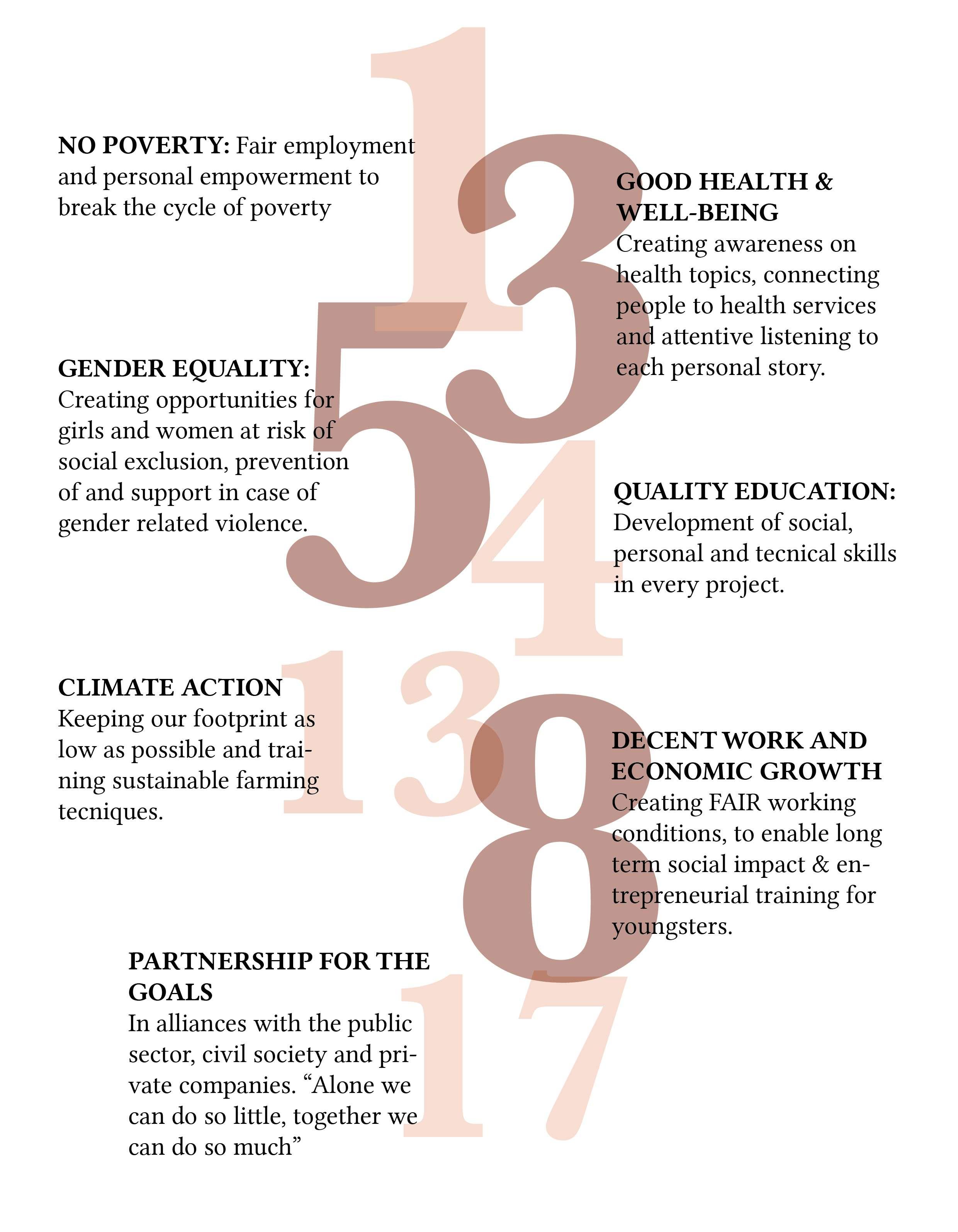

2.1.1 Peru
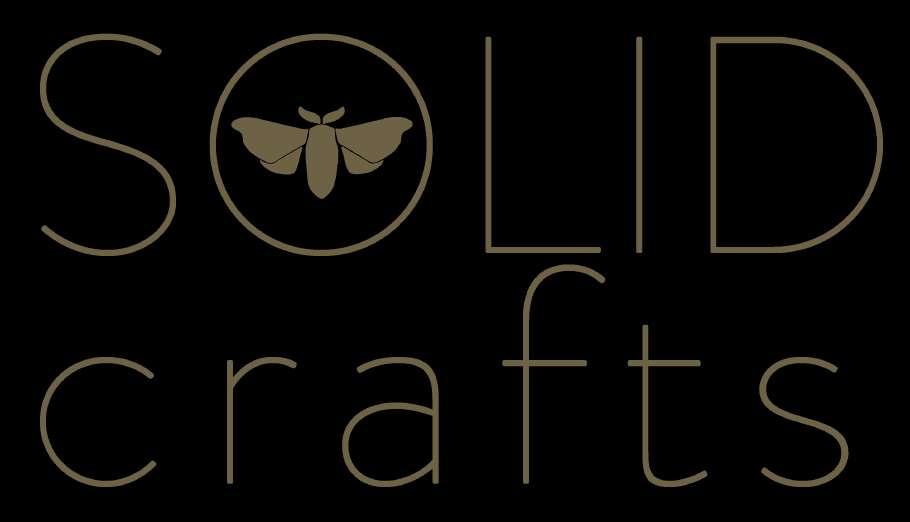
Manta is a sustainable knitting and crocheting workshop in the Peruvian Andes Solid's knitters hand-knit for global fashion and home deco brands We produce fashion and homewares that customers love, high quality, delivered on time, hassle-free from yarn to home-delivery products We work with over 180 underprivileged women, providing the education and training they need to become world-class handknitters The workshop's main objective is to improve the living conditions of these women, by generating a fair income and opportunities All the knitters work at Solid's workshop in Ayacucho or are part of one of the community groups in the rural area around the city The beautiful handmade products these women make, inspire both themselves and us to dream of a better world Because we believe “If you empower a woman, you empower a community "
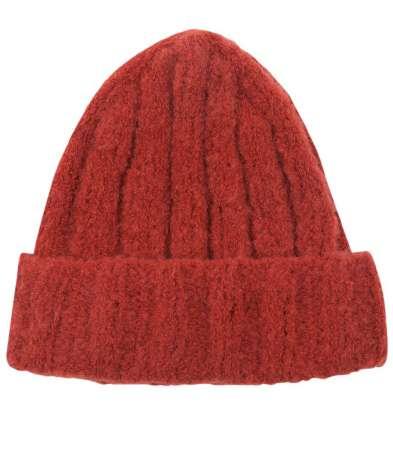
38% 21% 18%


Manta had 19 international clients in 2020 The biggest number of products are made for Belgian clients (65%) Other products travel all over the world to Austria (21%), Canada (2%), the USA (1%), France, the Netherlands & the UK
Manta is proud to produce a wide range of high quality, custom-made knitting handicrafts for customers worldwide, such as headwear, sweaters, scarves, mittens, throws, ponchos, acesories and decorative objects Our biggest orders are
The workshop works with the best alpaca yarn providers in Peru who offer a wide variety of qualities and shades, while guaranteeing international standards In addition to alpaca, the most luxurious and finest fiber of Peru, Manta has access to organic cotton yarns, tencel, silk and highland sheep yarn Our main yarn suppliers are: Michell, Inca Tops, Itessa & Cortextil
For 2020 Manta can report a revenue of $ 528,500 However due to the high investment in staff, training, operational costs due to the pandemic and social empowerment, Manta is still not able to make a profit To become financially stronger Manta needs to operate at a bigger scale and become more cost-efficient


Manta is continuously working to improve operational processes and many plans were made for 2020 But 2020 presented us with a lot of change and uncertainty Adaptability to change and maintaining the calm in a changing and stressful world was challenging for the team The workshop was closed for two months due to lockdown Many of the knitters returned to their village, to have food security, but not all returned to the city when the lockdown was lifted Due to the COVID-19 restrictions, the production capacity in the workshop was limited to 46% Production times were reduced because of the quarantine and delays in the delivery of yarns and other materials All this led to an overload of work for the knitters and the team In addition, during high production, some key knitters and teammembers were quarantined after they tested positive for COVID-19
Due to the social distancing, the amount of people working in the workshop was reduced Therefore, new strategies had to be adopted, such as knitting at home But this wasn't always easy for some knitters, mostly single mums, as all childcare services and schools had to close or were organised online, on a national level The production at home was therefore also slower


As a result of all this, part of the products were knitted by rural community groups which the workshop had been working with before Still, this unforeseen change meant more time had to be invested in follow-up, training and quality control to accompany the community group knitters The additional follow-ups generated extra costs and logistics As a result of all this, there were delays in delivery, which was detrimental to timely shipments Finally, logistics and efficient international shipping during the pandemic was one of the biggest challenges
We know our clients also had troubles during the pandemic but none of our clients cancelled their order (not even partly)! This heartened both Manta and Solid We are grateful to have loyal clients who will not let us down in difficult times We tried to minimize the delays in our production and have succeeded in keeping our customers satisfied, both in terms of delivery times and quality
Despite the pandemic, we managed to offer better work continuity to our knitters in 2020 There has hardly been a low season in the production workshop This created a more stable income for the knitters, a more pleasant wok atmosphere and gave room for the purchase of 15 additional hand-knitting machines, as those we have are in use practically all year-round So now a new group of knitters can get started right away
Manta has 12 team members, in the area of hand knitting, machine handknitting and finishing Manta provides employment for over 180 knitters, and up to 202 in high production months 80% of the knitters work at Manta's main workshop in the city of Ayacucho 20% of the knitters are part of one of the community groups Manta works with

In 2020, our handmade products were shipped to a total of 19 clients worldwide, mainly located in Europe (Belgium, Austria, UK, France, The Netherlands) but also in Canada, the USA & Brazil
Our handknitting workshop is WFTO & Promperu certified which recognises our commitment to the highest standards of social and environmental performance
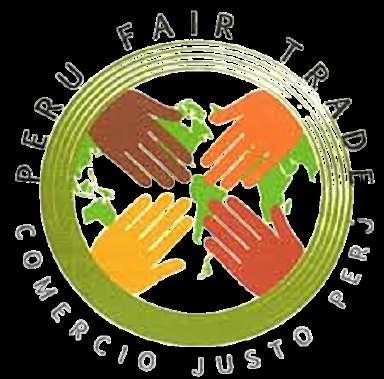
Solid is a value and purpose driven honest business with the United Nations’ Global Goals for Sustainable Development entwined in our DNA We are delivering on the UN’s Goals of Gender Equality, Decent Work and Economic Growth, Reduce Inequalities, and Responsible Consumption and Production
In 2020, extra attention was given to the alpaca supply chain and the development of RAS (Responsible alpaca standard) is followed closely with our suppliers and clients If all goes well this will be launched in 2021
Manta values highly the empowerment of its artisans, focusing on personal development and empowerment by providing social workshops in the workplace Manta works on the personal well-being of the knitting mothers through means of individual coaching and group sessions, on health issues, personal well-being, the prevention of violence and education
Every day we hear stories of what the decent work and fair employment mean to our artisans and their families We see them blossom into confident, strong women Many of our artisans have never finished secondary school, or even primary school For many, working at Solid's workshop is the first time they feel valued, and their self-esteem is growing Bringing these women together, away from their domestic, often harsh lives, has created a wonderful sisterhood Our workshop is their safe place This connection is an integral part of Solid, which is touching the hearts of brands and consumers around the world
In 2020 the focus was on the prevention of COVID-19 Implementing many preventive measures, providing masks, hygiene kits and information, we could keep the number of infections low 29 knitters tested positive, and completed their isolation and treatment Ten team members and volunteers also tested positive at some point Knitters continued with their weekly practice of keep-fit and in the machine area, all knitters received ear protection Two health campaigns took place, at the start of the year Two knitters were diagnosed with the first signs of breast cancer and 30% of the knitters have a STD (sexually transmitted disease) Thanks to testing they are now able to receive support and treatment


of the knitters are single mothers
78% of the knitters are mothers with children < 18 years old of the knitters didn't finish primary school
of the knitters have a rural background & didn't grow up in the city
Some mothers, with incomplete primary or secondary school education, were motivated to resume their studies online, to provide a better future for their children and at the same time fulfill their dreams of completing their education
knitters participate in the free adult education program, that Solid organized in cooperation with a public school
Motivated supervisors strengthened their digital skills, as this became much more present in daily life and production
Videos were made and broadcasted on Facebook and television, about ‘Emotion management', ‘Prevention of violence', ‘Positive parenting' & ‘Prevention of Covid-19' Eight videos were made in Quechua, the local mother tongue of many knitters One video had over 55 000 views 79% of the viewers were women
of the knitters are supporting their children academically, compared to 46% at the start of the year

Working with young, underprivileged, mothers, Solid chose to invest in a high-quality day-care service, next to the workshop, giving peace of mind to all the knitting mothers and providing a stimulating environment for their children In 2020, the schools were not open due to Covid19, creating new needs in the families of the knitters Many parents had difficulties in supporting their children academically, due to lack of knowledge, digital skills and a lack of access to good internet, a computer, smartphone or printer The caregivers of the nursery and pre-school program transformed themselves into a team that guided the knitters and their children in all their questions about emotional wellbeing and online education
children of knitters, aged between 3 and 18, receive educational support Despite all the barriers, all these children finished the school year successfully Two primary school students resumed their studies Two children left school because of stress and anxiety as a result of social isolation 20 children and adolescents excelled in their schooling achievements
babies receive constant follow-up, food and hygiene support packages


Hadithi Crafts is based in the South-East of Kenya, in the Kasigau region, located between the Tsavo East and West National Park Hadithi's handwoven baskets are a collection of traditional and contemporary sisal and palm leave baskets Hadithi means ' a story' in Swahili, because each basket tells the unique story of the powerful woman whose hands braided it What's more, every basket sold directly supports its creators and their families, ensuring a fair income and financial independence for Kenyan women in rural areas, where employment is scarce Selling these baskets also provides a sustainable alternative to environmentally harmful practices like the poaching of wildlife and destruction of forests for charcoal, timber or farmland All of the profits fr women ' s groups and the conservation of wildlife and forests in
1,517 5
2020 presented itself with three months of provincial lockdown and loss of orders and revenue There were additional costs and overheads to reckon with 1,500 masks were handed out to all the artisans
25%
Hadithi made a good comeback in the second half of 2020, with a 25% increase in sales turnover compared to 2019 Over 10,500 hadithi baskets were sold through Solid, generating € 80,000 of income for the weavers The little profits made got reinvested in expanding the business
Over 1,517 female artisans were involved in craftsmaking for Hadithi in 2020 These women are organized into 51 women groups in the Kasigau region This meant an extra 5 women groups and an 8% growth in artisans compared to 2019 40 existing women groups were strenghtened in quality standards
female artisans find employment through Hadithi women groups were added
increase in sales turnover in 2020
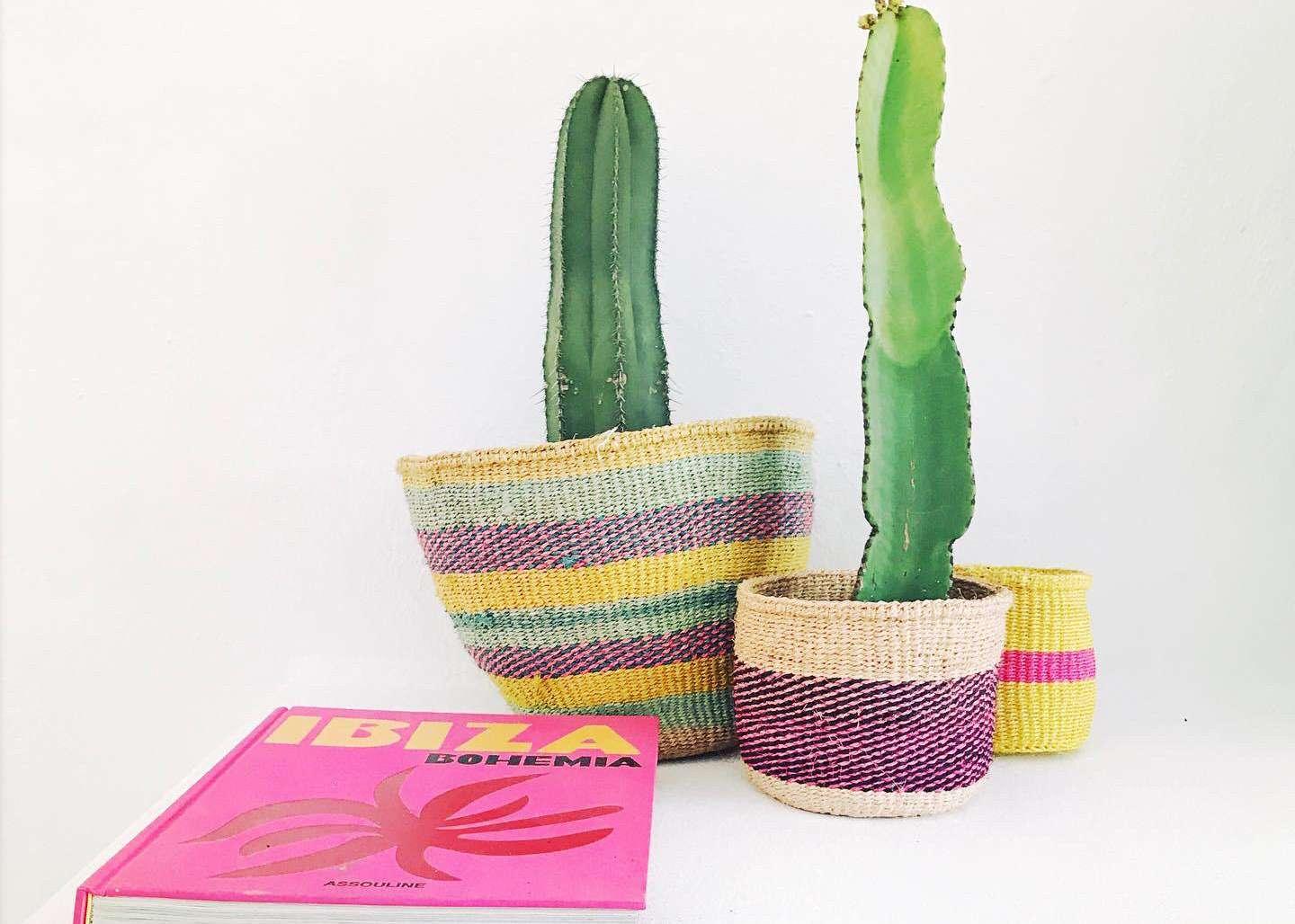
In 2021 Hadithi plans to open nine community shops with all the necessary materials for the basket weaving, close to where the women live
Hadithi plans to grow further, by 150%, so all the women can earn an even better income This means internal and communication systems have to be optimized All the chairladies will receive a smartphone soon! New sampling and design will also be important to in the development of new competitive products Each women group will receive three training sessions in 2021
Hadithi also plans to further monitor the impact of its job creation, by doing an impact survey in all the women groups


Paces Crafts is a hand-weaving workshop in the heart of India's northern region, Jharkhand, the second poorest state in India With Paces Crafts, Solid aims to provide sustainable employment for tribal women living in rural area around the city of Ranchi By offering an honest income to these young women Solid wants to bring an alternative to human trafficking and the uncertainties and dangers of day laboring Paces Crafts produces a wide variety of handwoven and crocheted products, all custom-made for conscious brands and retailers For this project Solid can count on the financial support of the Belgian government (DGD) through its business partnership facility
2020 started out as a promising year, a year in which Paces would expand and validate it’s new business model In January and February the first batch of women were trained in weaving and were about to start their first production
Paces was ready to move to a bigger building Meanwhile in Europe, Solid Crafts sales platform had invested a lot of time in defining the perfect sales strategy
Then COVID-19 hit! Europe went in lockdown and after a few weeks India followed The Indian lockdown had dramatic consequences for the poorest, all over India
Migrant workers especially were forced by circumstance to travel back, often by foot, to their state of origin The informal market collapsed and left many Indians with no income for several months


During the months of lockdown Paces maintained the possibility to give work to the women, tasks they could do at home Paces also provided some emergency financial support to the most vulnerable women The management team continued its work online, from their home office Skype became our new office-space and time was taken to analyse, question, change, and improve many processes
Paces came out stronger then ever! In September Paces was finally able to open it’s doors again The first thing on the agenda was to finally move to the new, bigger building and to ship all the finished products that were stuck in Ranchi for months, to Europe
COVID-19 has damaged the fashion industry severely Finding new clients in this sector was extremely difficult Most of the businesses were clinging on to existing collaborations and were not in the right mindset to start working with new partners
But there is also a positive note! The home interior market however has grown tremendously Forced to stay at home, people invested more in cosiness in their homes Therefore, Paces decided to take a risk and invest further in the production of a homeware brand: Bombyx Tales of India This collection embraces all kinds off furnishings and homeware made from recycled saris
It was also decided to focus sales efforts on the home interior market and this has lead to some interesting prospects for 2021 To be continued!

Why recycled saris?
Saris are, often colourful, draped garments worn by women in India They consist of a four to nine meter long, and around one meter wide, cloth that is worn around the waist and shoulder
We recycle, wash and upcycle the saris into woven, crocheted and embroidered products Except for transportation the supply chain and production of these sari products is completely carbon neutral! And every piece is unique
In 2020, the artisanal team doubled in size to 53 female artisans, thanks to a successful training program at the start of the year 1,055 pieces of clothing and other handmade products were made for our clients in fashion and homeware
Despite the lockdown and setbacks in 2020, Paces could realize a revenue of $ 28 677
2020 saw the launch of the Quality of Life survey The survey allowed the women to reflect on their circumstances, hopes and motivations It was also used to create a social programme, ensuring the topics were chosen by and relevant to the artisans The first event was a Human Rights workshop The social programme has since been paused through the pandemic but is planned to resume in 2021 N
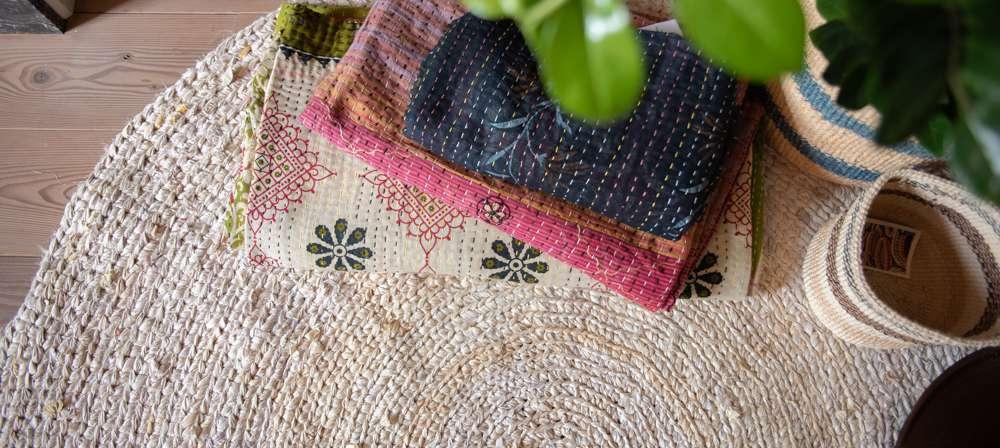

N
2.2.1
Quinoa can be considered, "the mother of grains" Even the Incas were certain of it With its mark of " super food", quinoa conquers the world What’s more, quinoa is not just full of vitamins, it’s also one of the most water-footprint friendly grains on the planet At Solid Food, we honour the tradition and the origin of this precious seed Indeed, technically quinoa is a seed and not a grain Our quinoa is produced strictly in the very heart of Peru, Ayacucho by local farmers Solid food builds on the foundations made by Solid rural, since 2007 Solid rural has a long working relation with quinoa farmers, in the rural areas around Ayacucho, training and assisting them on their fields on a dayto-day basis for many years, helping them improve their agricultural business to become self-sufficient and consequently improve their social living conditions
Since 2016 Solid Food brings this (organic) Peruvian quinoa directly to the Western market Solid Food is a spin-off of Solid that commercializes the products honestly, ensuring a clear profit to the local farmer The program was developed for and in close collaboration with the farming families There is still a big focus on capacity building and an intensive, sustainable and long-term cooperation with the farmers themselves
In 2020 Solid Food Peru gave technical assistance to 377 farmers, a growth of more than 20% compared to 2019 Every farmer was visited at least four times during the year
Due to the pandemic, less quinoa was exported than the year before However, thanks to some new clients the same level of sales could be maintained at Solid Food It’s also clear that the importance of the organic market is growing: in 2017 about 30% of our exports was organic quinoa, whereas this percentage increased to 55% in 2020 In 2020 Solid Food Peru obtained, as one of the first companies in Ayacucho, its Peruvian Fairtrade label of "Buenas Practicas de Comercio Justo", with a very high score of 99,20% Although Fairtrade principles have been in Solid’s DNA from the start, this was a nice confirmation of our sustainability approach As a social enterprise, having both business and social goals, Solid Food wanted to do something about the polluting ocean freight That’s why since the end of 2020 a cooperation with GoodShipping was set up, resulting in all of Solid Food’s ocean freight to be climate neutral This way about 64 000 kg of CO2 emissions can be offsetted on an annual basis!

For 2021 Solid Food will focus even more on the food processing industry This will be done by emphasizing its strengths: quinoa of an excellent taste and offering high production yield in the industrial process A 100% traceability guarantee and a major social impact are the other USP’s of Solid Food
Montefino, until 2017 known as Avelac, was set up as a training institute for farmers with dairy cattle It’s located on the roof of the Andes, at an altitude of 3800 meters Initially this social company wanted to help to improve the cattle breeding in Ayacucho, but during the last ten years, activities at the farm expanded Run by a collective of 17 local shareholders, Montefino is producing its own cheese, yoghurt and other dairy products on site On the 49 hectares of cultivated fields they are experimenting with new products (for this altitude) such as organic strawberries, blueberries, cut flowers and other agricultural products Montefino also breeds pigs, guinea pigs, chickens and trout
Farm Montefino became a training institute for youngsters of our Jovem project, our young entrepreneurs (p 31) and a place where visitors from the city, can experience the real Ayacuchan farm life They can participate in daily farm activities, enjoy a local meal, have a chat with the farmers and even stay overnight to escape the busy city life
Montefino is very proud of its cheese In 2020 the dairy factory produced 14 170 kg of cheese and Montefino was even crowned national champion in the 4th national cheese competition, with the "ANDINO" cheese

It can be said the jury was very demanding and of international stature This event generated a lot of interest from local customers, as well as authorities of the Ayacucho region During the first half of 2020, the demand for cheese was relatively low due to the extended quarantine However, in the last semester and specifically in the last two months of the year, the demand for cheese grew exponentially, driven by the prize that was won Because of this growth almost 95% of our milk production was destined to process dairy products In 2020 there was an increase of about 25% in the milk production (209,852 L ) and therefore an increase in sales compared to the previous year
The farm has 81 cows and a steady rhythm of four births per month The productivity per cow was 14 liters day 17,595 L of yogurt, 10,000L more than in 2019, were processed
At the end of 2019, 500 m2 of new strawberries were planted with the JOVEM project This plantation went into full production in 2020 1,938 kg of this delicious fruit were produced and easily sold (4 times more than in 2019), as the demand for strawberries was very high during the quarantine 2,400 bundles of roses were sold, this demand dropped during the pandemic All the product were sold locally, in one of Solids four shops; at the farm, at the city centre or at the airport of Ayacucho, and even in the street because of the high demand The shop at the airport was closed for almost 10 months and only reopened at the end of January 2021
The agrotourism activity was relatively low compared to 2019, with only 1,036 visitors in 2020 The quarantine issued by the Peruvian government paralyzed tourism activities for more than six months

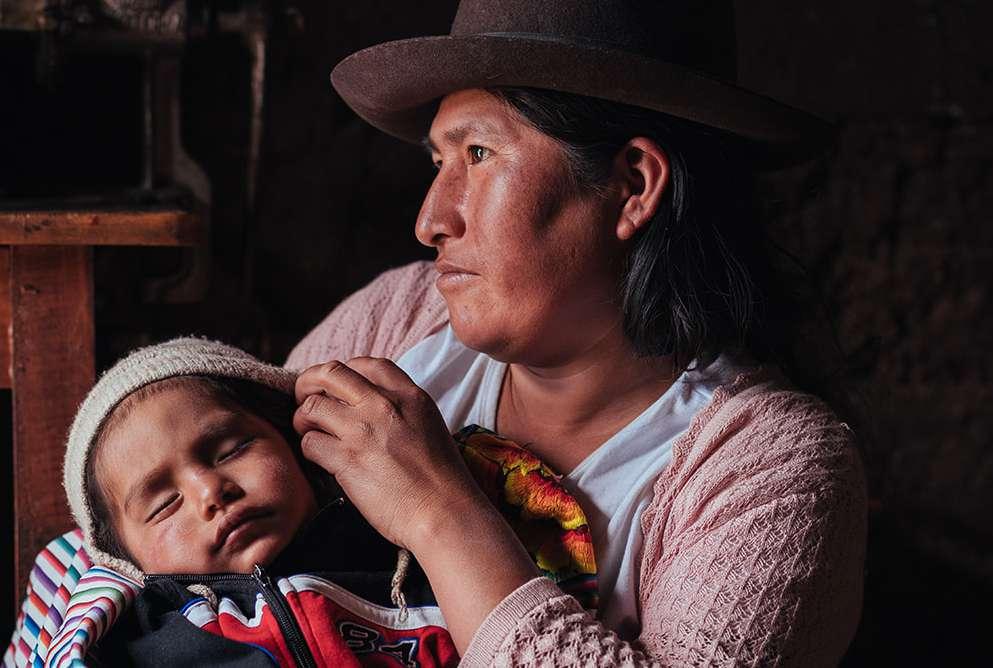
Desarrollo Integral del Adolescente (Dia), translated as ‘Development of adolescents’, is a social organization which specifically targets the problems surrounding teenage pregnancies and sexual abuse in minors Through different projects, the organization wants to strengthen the self-reliance and empowerment of these girls, often living in (extreme) poverty
Both in the rural area as in the city, teenage pregnancies still remain a large problem The risks of young girls, and their children, ending up on the streets with no education, poor parenting skills and no vision on the future whatsoever is a problem we at Solid are determined to help tackle Dia focusses on the prevention of teenage pregnancies, on shelter for young girls, victims of sexual violence and strengthening positive parenting skills of young teenage mothers Young parents are encouraged to get an education and help them find the right daycare for their young children
Dia has three main strategies to work the multidimensional issue of teenage pregnancy
A. Prevention
Project CDA
Adolescent Development Centre
B. Coaching
Project EMMA
Empowering adolescent mothers
C Shelter
Project CAR
Center for Temporary Residential Care
10
out of every teenage girls in Ayacucho is a mother or pregnant 2
1055 pregnancies in 2020 (15 6%) compared to 12,6% nationally
(Source DIRESA & INEI-ENDES 2018
1055 adolescents under the age of 18 became mothers during 2020 in the Ayacucho Region
(Source DIRESA OGTI Report Ayacucho 2020)
300
children and adolescents were sexually assaulted in the Ayacucho Region during 2020
(Source Mesa de concertación Ayacucho 2020 Report)
adolescent girls under the age of 10 became mothers during 2020, victims of sexual violence in Peru 20
(Source MINSA 2020I birth registrat on)
In Peru, despite the existence of national guidelines for comprehensive sex education, in most schools and families there is still a great taboo around sex and sex education and it is common to push the message of no sex before marriage However, statistics indicate that many adolescent girls have sex before the age of 15 In Ayacucho 15 6% of pregnancies were in teenage girls in 2018, (INEI-ENDES 2018 Elaboration: MCLCP) This regional figure is above the national average of 12 6%
CDA, Centre for Adolescent Development, believes that creating a positive school environment, providing informative sex education and improving the personal skills of young people are part of the solution, which is why we have worked in five targeted educational institutions with teachers and students, providing interactive workshops, taught by the teachers themselves and supported by the CDA team
CDA also strengthened student leaders to become advocates for change, working with their peers, to tackle the issue of teenage pregnancy
The activities of the CDA during 2020 had to be suspended due to the closure of schools as a consequence of the pandemic.
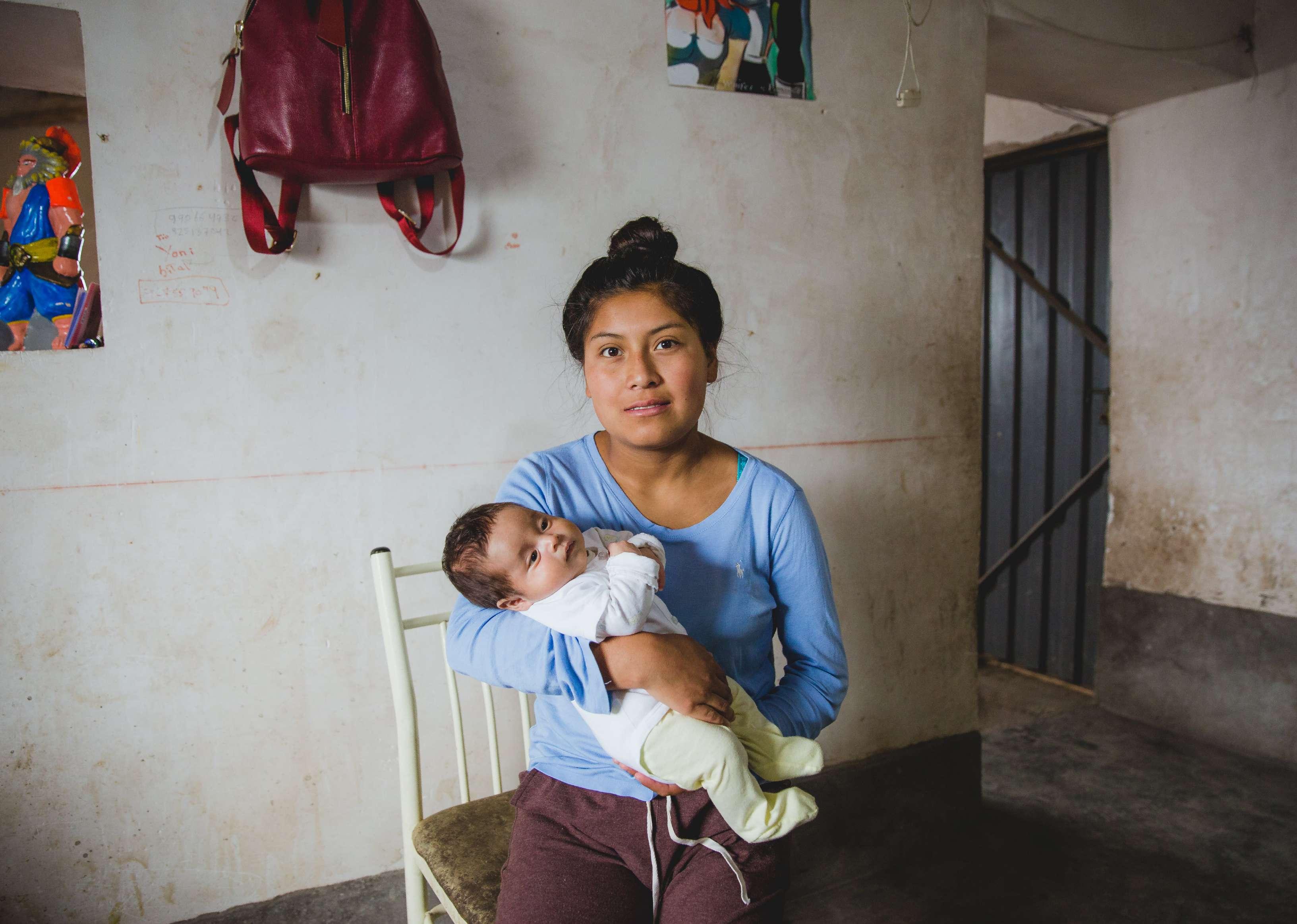

The EMMA project offers counselling to adolescent mothers in Ayacucho, Peru Through weekly home visits, trained nurses and obstetricians accompany adolescent mothers during pregnancy and after childbirth, ensuring the proper development of mother and child for one year At the same time, they pay special attention to the mother's personal development and emotional well-being
Many of the teenage mothers live in a situation of violence, often repeated from generation to generation, creating a vicious circle from which it is difficult to escape As of July 2020, 26,400 girls under the age of 19 gave birth nationally, 460 of which were children under the age of 14, according to MINSA's Live Birth Certificate Online Registration System (CNV) Two out of ten teenagers in the Ayacucho region, become pregnant or are already mothers (Peruvian National Institute of Statistics 2017) Faced with this reality, EMMA wants to offer better prospects
It is important to note that many girls and adolescents who become pregnant have been victims of abuse and sexual and/or family violence This situation is combined with school drop-out and social stigmatisation The sociodemographic conditions of adolescent girls are not helping: out of 111 adolescent mothers, 43 (38 7%) of them come from a broken family, 58 (52 2%) do not live with their partner, and those that do, do not have the support they should receive 45% of them (50) come from homes with family violence problems, more than half of the adolescent mothers (56 6%) dropped out of school (according to the socio-economic data sheet - DIA - 2020) These are very complex data that present a great challenge to the project, since this is a very vulnerable group, invisible to the Peruvian state

Every year, 100 teenage mothers, between 14 and 17 years old and their children, under 3 years of age are accompanied Partners and family members are also invited to participate Outreach is done through health centers and media The participating teenage mothers are selected based on poverty criteria and often live in the outskirts of the city of Ayacucho Most struggle with malnutrition, domestic violence, abandonnement and school drop-out In 2020, due to the context of COVID-19, 111 adolescent mothers were invited to the program, as they are a highly vulnerable group that required support By the end of the year, 102 of the teenagers completed the project The focus is on improving the development of the young child and their mother, assuring good health, wellbeing and a safe and stimulating environment Teenage mothers are encouraged to go back to school, to break the chain of poverty and low education
of teenage mothers live without a partner 52% of teenage mothers come from a home with family violence problems 57% of teenage mothers dropped out of school because of early pregnancy 55% of teenage mothers come from broken families 39%
In 2020, the usual home visits had to be organized online, using social networks and digital platforms or through calls Individual sessions and group workshops were organized on topics like emotion management, the prevention of violence, family planning, positive parenting, the prevention of Covid19, education, health and nutrition This digital way of working was new for all of the teenagers as well as for the team and challenging at first Through an emergency grant of one of our partners, cellphones and internet recharges could be ensured 44 videos were also made and broadcasted on different channels, talking about topics related to the program Some videos were made together with teenage parents, talking from their experience The information reached over 254,500 people, 79% of the audience being women
The coordinated work with the municipalities and partner institutions allowed the work with the teenage mothers to have the expected results, even in a complicated context such as Covid-19 With the help of international partners, the project could be continued and new needs were covered Food, hygiene and school packages were provided, and covered the basic needs created by the sudden unemployment of our target group
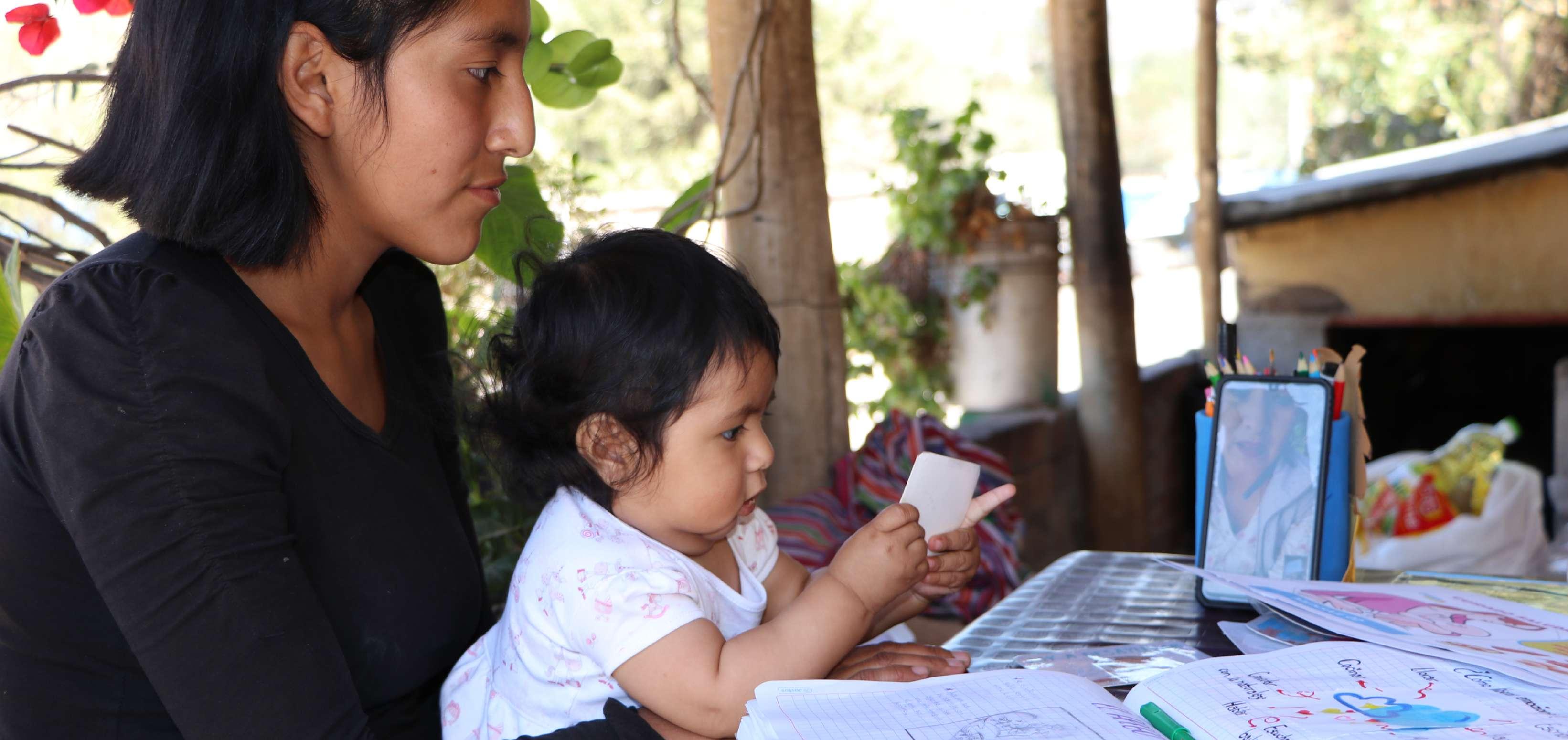
98%
of teenage mothers know and have tools to manage their emotions in a healthy way (86% at the start)
90%
of teenage mothers are now aware of the care routes in cases of violence 4 cases were reported (19% at the start)
86%
of teenage mothers have a structured daycare routine for their child at home, as child care services are closed for 1 year (40% at the start)
74% of teenage mothers use a contraceptive method (40% at the start)
E d u c a t i o n a l s u p p o r t
91%
99% of teenage mothers avoided a second pregnancy of teenage mothers practice handwashing as a preventive COVID measure (55% at the start)
The active participation of some of the partners of the teenage mothers gave good results; 25 7% of them now use a contraceptive method (only 17% at the start), meaning both partners assuming the responsibility for sexual health We only had one case of unplanned second pregnancy
85 adolescent mothers implemented play areas at home for their children The distribution of toys taught us that along with the implementation it is necessary to work on the promotion of the importance of play The practice of play allowed the teenage mothers and their families to consider play as an activity that influences the child's development positively, especially in times of confinement, when children could not go out to play with others
The team also focused on the education of the teenage mothers 83 of them hadn't finished secondary school, 47 were not studying at the moment The girls were accompanied in the enrollment process, motivated constantly and received help with the many challenges online education presented for them (lack of access to quality internet, a mobile phone or laptop, limited digital skills, as well as the lack of support from the partner) 44 teenagers (53%) retook their studies and 36 (43%) didn't abandon school in this challenging context Only 3 mothers didn't study Some girls even managed to complete two grades in one year, participating in a faster program and one teenage mother achieved the First Place diploma in her school The new reality of online classes seemed to be an advantage for the girls to resume their studies, being able to be at home with their child and study at the same time Others could remain connected even when moving to the countryside to find more food security


"When my son finished his routines he was very happy, he wanted to repeat every step and would ask me 'Mummy, what's next, what do we do tomorrow? The routines are helping me to get my son to brush his teeth without tantrums, to eat, to wash his hands & to organise my day. Thank you!"
The CAR de DIA is the only Residential Care Centre in Ayacucho that cares for teenage girls and teenage mothers and their children, victims of domestic and sexual violence
The adolescents are referred by the Special Child Protection Unit or the court and are accompanied in recovering from the trauma until being reintegrated into their family nucleus or until they start living independently, for those who reach the age of majority Most girls stay for up to two years, during which their life skills and emotional wellbeing are strengthened
We take in teenage girls and teenage mothers who are victims of domestic and sexual violence, between 12 and 18 years old, who are referred through the Special Protection Unit and the Family Court (justice operators) in the city of Ayacucho The accompaniment lasts approximately two years There maximum capacity is 15 teenagers and three teenage mothers with their child
The girls in the shelter are accompanied in all areas of their lives and strenghtened through individual sessions, group sessions and therapy The work with the family is done by the social worker to strengthen the bond family - adolescent and ensure a healthy family reintegration The move to a much larger house (thanks to the support of an important international partner) with green areas, reduced the effects of the social confinement since more spaces for accompaniment were created
including, 3 teenage mothers and their young child
26% 22% of the adolescents are admitted for sexual violence of the adolescents are admitted for domestic violence of the adolescents are admitted due to family abandonment
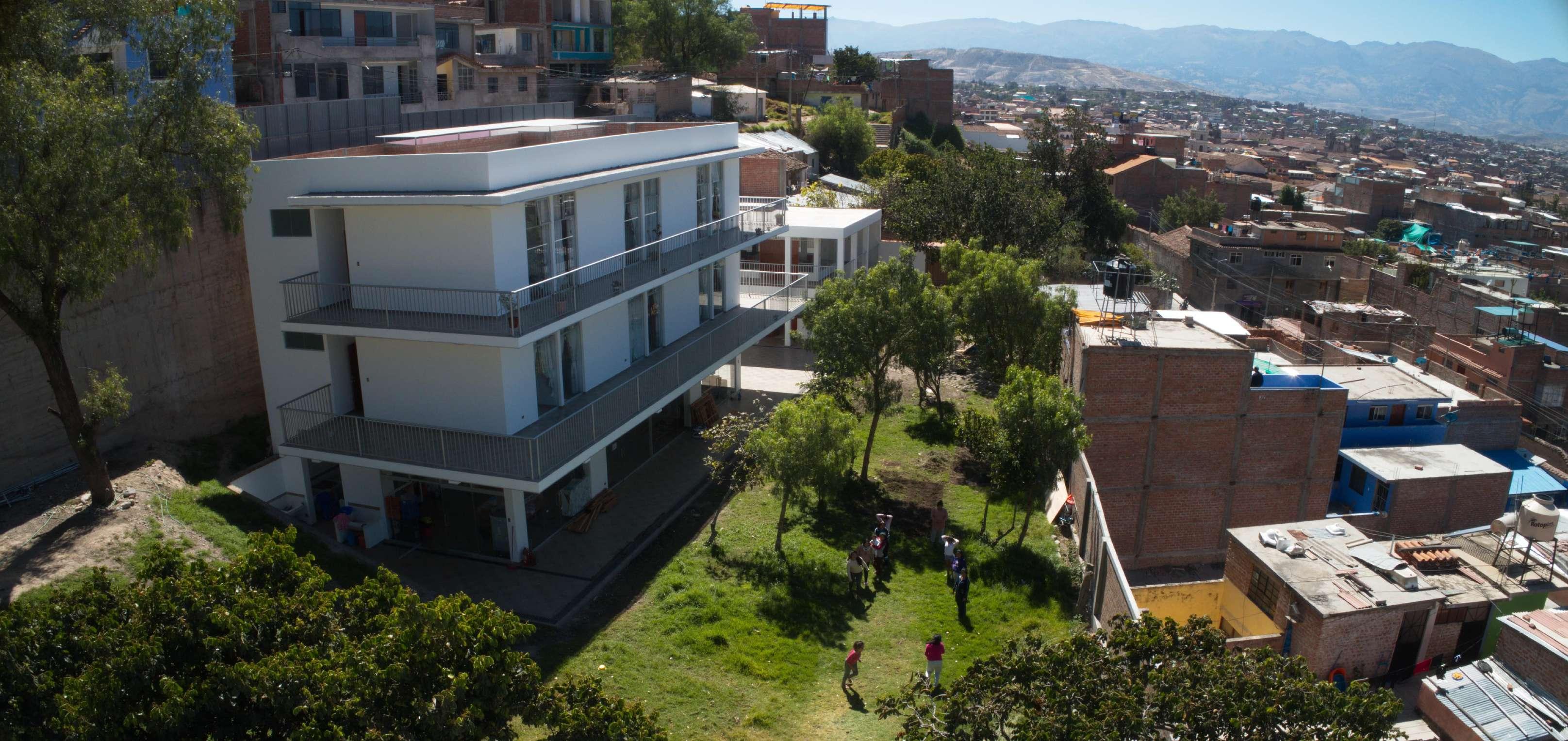
Nine girls left the Residential care centre in 2020
In 2020 we were only able to work with three families due to lack of interest and the impact of the pandemic The girls stayed in touch with family members through phone only
Psychological care
18 adolescents received therapy sessions Three adolescents continue to have psychiatric appointments and the corresponding medication for psychiatric problems
90% of the girls were emotionally stable and progress is evident Emotion management techniques and psychoeducation techniques, used in a playful way allow them to improve their emotion regulation and behaviour
70% adolescents with reduced anxiety of teenage mothers have strengthened their positive parenting skills 100%
Education
90% of the girls continued their studies on a regular basis*
10% follow classes in the weekend*
*Both forms, due to the pandemic, were virtual
Covid cases
An isolation area was set up for the new adolescents who entered the CAR, where they'd stay for a period of 15 days There were NO cases of covid-19 in the adolescents and their children
Return to family of origin (44 44%)
Independant living (33 33%)
Studio living before independent living (11 11%)
Death of a premature baby (11 11%)
Activities like bio-gardening, knitting and cooking, created therapeutic spaces as well as oportunities for entrepreneurship, allowing the teenagers to generate a small income as well as emotional stability
The ancestral knowledge about Andean culture has helped us to overcome moments of social isolation, with health establishments providing limited emergency care Ailments were resolved with the consumption of medicinal plants, combined with having private doctors and dentists helping us in cases of medical attention
The accompaniment of this group is a daily learning process Some worrying cases of self-harm (cutting), were seen in 2020, They have allowed the team to strengthen their knowledge on these issues Working on grief is of utmost importance in all aspects, moving to a new home, the death of a baby, girls returning to their families, as letting go of these attachmentments affected the adolescents emotionally
Cooperation with many allies was essential in 2020: health centres, schools, justice, among others, allowed for comprehensive care
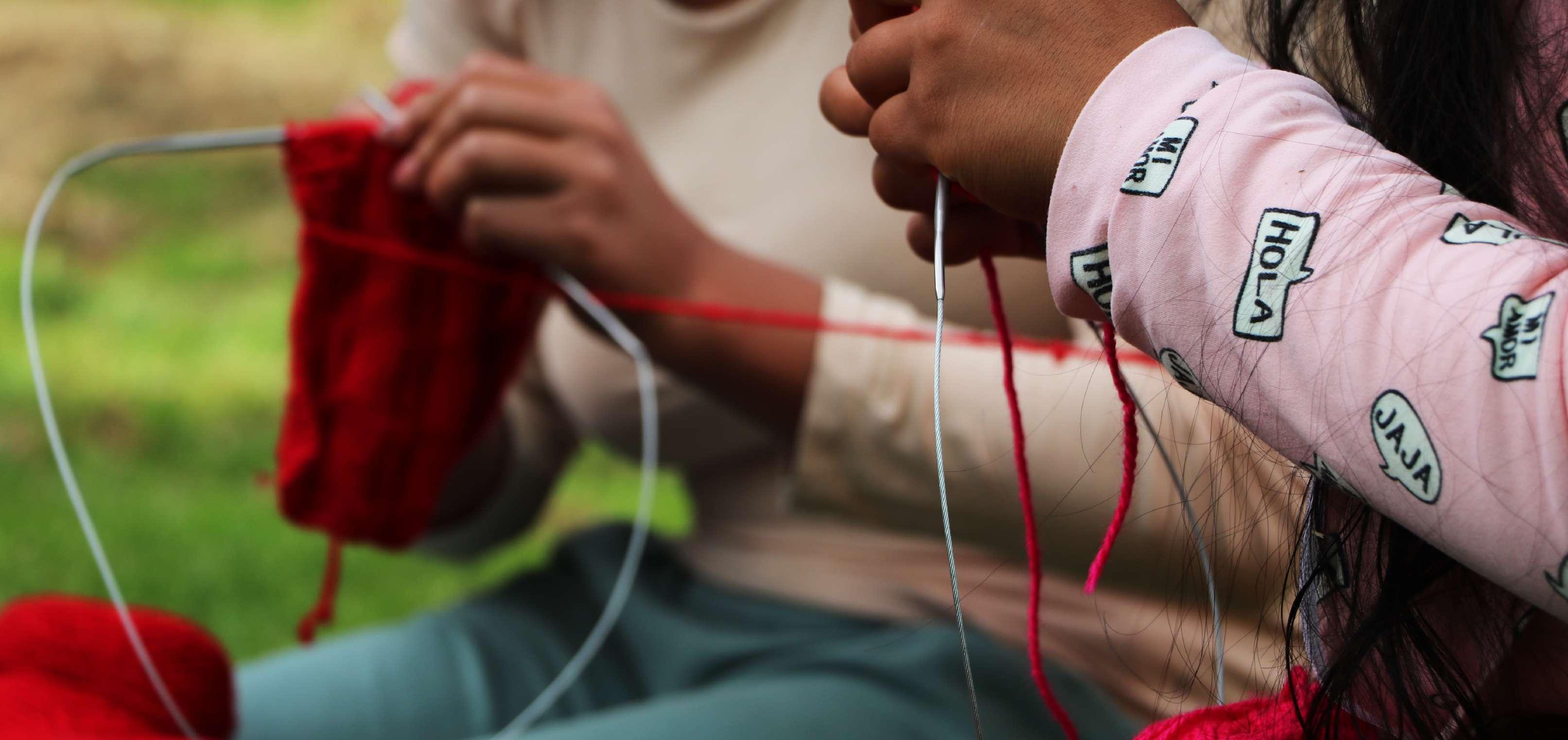

The activities of the Healthy Families project had to be suspended in 2020, due to the COVID-19 restrictions and a draw back in resources.
Jóvenes emprendedores, translated as ‘ young entrepreneurs’ is a three year training program for rural students, age 15 to 23, to strengthen their entrepreneurial, technical and agricultural skills and personal development This project responds to the problem of the lack of opportunities for young people coming from rural areas Through an agricultural and business training Jovem gives them the possibility to become a successful entrepreneur, in order to improve their living conditions on the countryside
The training normally takes place during the weekend, at the "Montefino farm", a place that has facilities for small and large animals, a variety of crops and flowers, a dairy processing plant, accommodation and a restaurant In 2020 classes were organized online and in the students' communities Students have a monthly contribution of 5€, which can be paid in cash, with food or labour This small contribution encourages the families and students to value the training and evaluate well their commitment
In 2020 the team accompanied 81 students from five rural schools, 58 at the intermediate level and 23 at the advanced level Unfortunately no new students were selected for the basic level due to the COVID-19 pandemic The government took restrictive measures at a national level which did not allow face-to-face classes The training only continued with the students already in the program
64% of the parents work in agriculture (58% in quinoa) 19 families work with Solid Food
Most of the families of the students consist of five family members (40%) or more (30%) On average, the families earn between 90€ and 115€ per month (39%) 27% earns less 40%
60%
A family would need around €15 a day to cover food, health and other expenses adequately Most families earn an average of €3 a day This is reflected in the health indicators where children under five years suffer from malnutrition and anemia
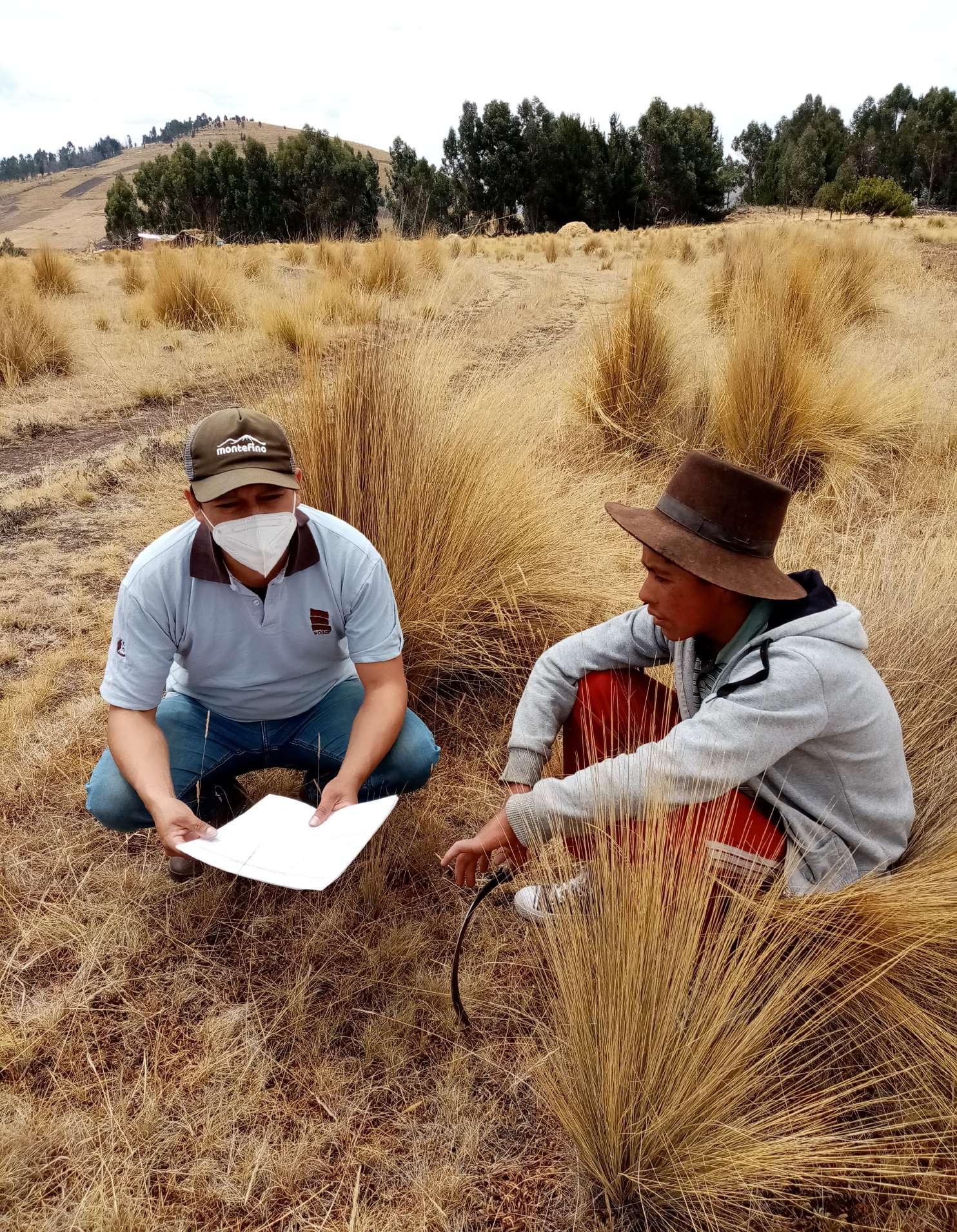
In 2020 the build of a new auditorium and brand new dorms for the project were completed Unfortunately the pandemic didn't allow for the students to use them As classes couldn't be organized at the farm the team decided not to select new first year students The lack of digital skills in rural youngsters, limited access to internet and laptops, would make the start of the training especially hard
The Jovem project is complementary to the regular education and lasts 3 years Training is focused on sustainable farming tecniques, in a variety of products, entrepreneurship and personal development Classes combine theory and practice and students are encouraged to learn by doing, in a group business (first year) or their own individual business (second year)
In the second year, students have the knowledge to develop their individual business plan and participate in a business plan competition to get access to a loan and to become real entrepreneurs This competition evaluates the business idea and most importantly their attitude Classes in business management and personal development continue in order to strengthen soft or entrepreneurial skills In 2020 every school (5) received a laptop and two modems, to connect to Google Classroom These classes were strenghtened through regular community visits, taking into account all preventive measures Only 5 stduents left the training, 53 students pass to the advance level
of the students (38) will implement their businesses between November 2020 and March 2021; 36
a project
(€ 180) on average and two with their own resources
When I started my business, I didn't have the support of my parents and that discouraged me, but I made an effort to continue, with the income I obtained from selling eggs I could cover some of my study expenses. My parents decided that I should leave the business to them and dedicate myself only to my studies.
of the students (2nd & 3rd year) report that they have improved their communication with their parents and are able to express their feelings and goals
70%
- Janet Vizcarra Carrión (Allpachaka)
60% of the students (2nd & 3rd year) have improved their self-esteem and assertiveness 67% of them have strengthened their self-confidence and believe more in themselves
The advanced group is made up of 23 youngsters, girls and boys, who have their own enterprise (since 2018) in raising bees, guinea pigs, chickens, pigs, cultivating strawberries, vegetables, roses, quinoa, etc Their products are high in demand in their areas and several of them already sell their products in the city 92% of the youngsters continue with their enterprises today, earning an average monthly income of 450 to 500 soles (€ 100) An income comparable to their parents', but obtained with less hours and efforts, enabling them to invest time and ressources in further studies 9 students continue higher education at the University of Ayacucho When having the support of the parents, many of these ventures turn into family businesses of the students (22) have a profitable business
96 % of the students improved their product management to demand a higher price 91 % 87% of the students shared their experiences and tecnical knowlegde with 2 other farmers
In 2020 the project received an external audit, at the request of Collibri Foundation, the sponsor of the project The suggestions mentioned in the audit will serve as a basis for further interventions The main challenges are to further strengthen gender equality within the program and to find new strategies to improve the living conditions of these youngsters, in the rural area to stop their migration
"JOVEMdemonstratestoyoungpeoplethatopportunitiesforchangeinlivingconditionsandlifeprojectscanbe createdlocallyratherthanlookingelsewhere"* AuditReport
40% of the students participating in the programme confirm they are creating a new perception of rural development and opportunities for progress in the countryside
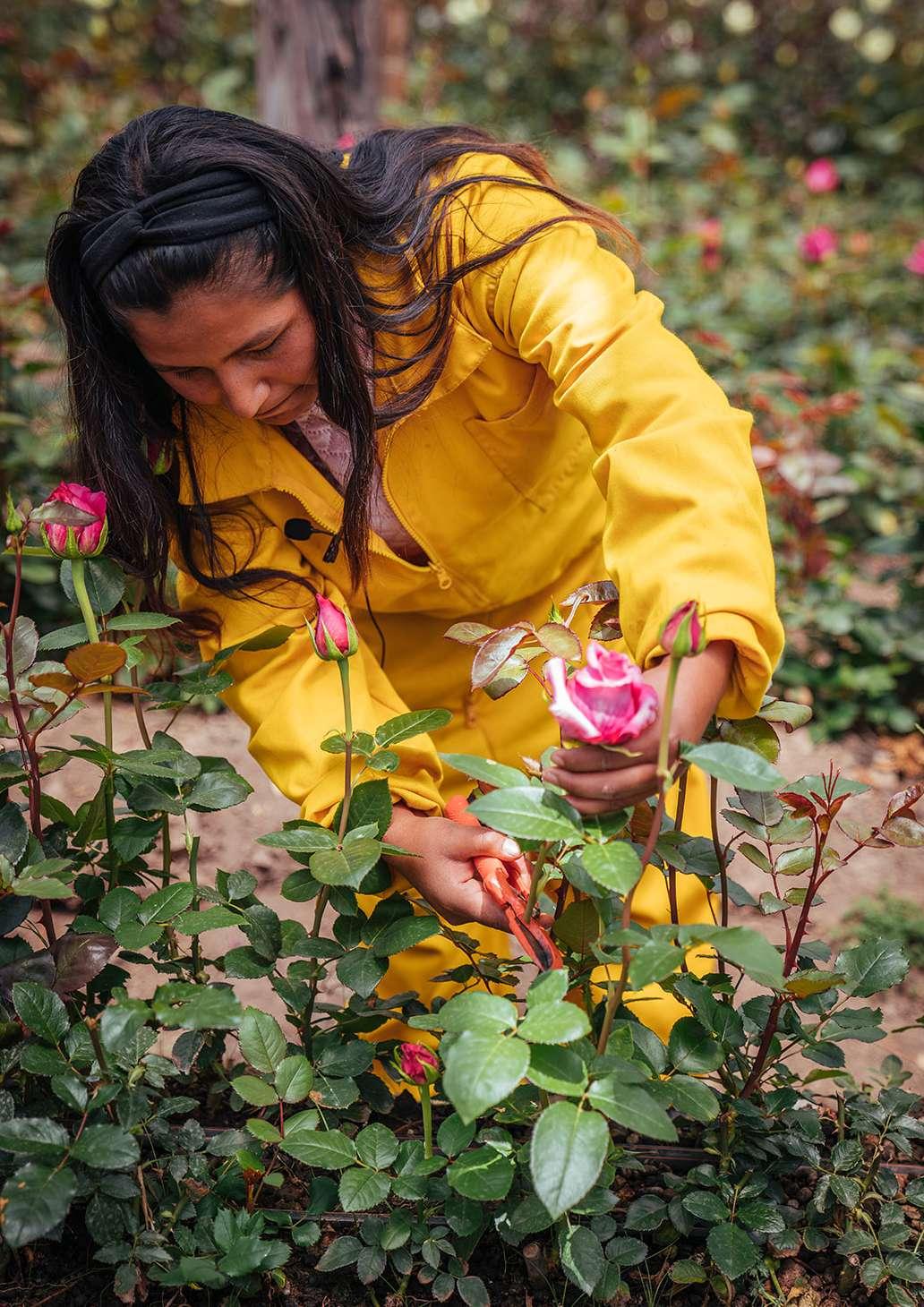
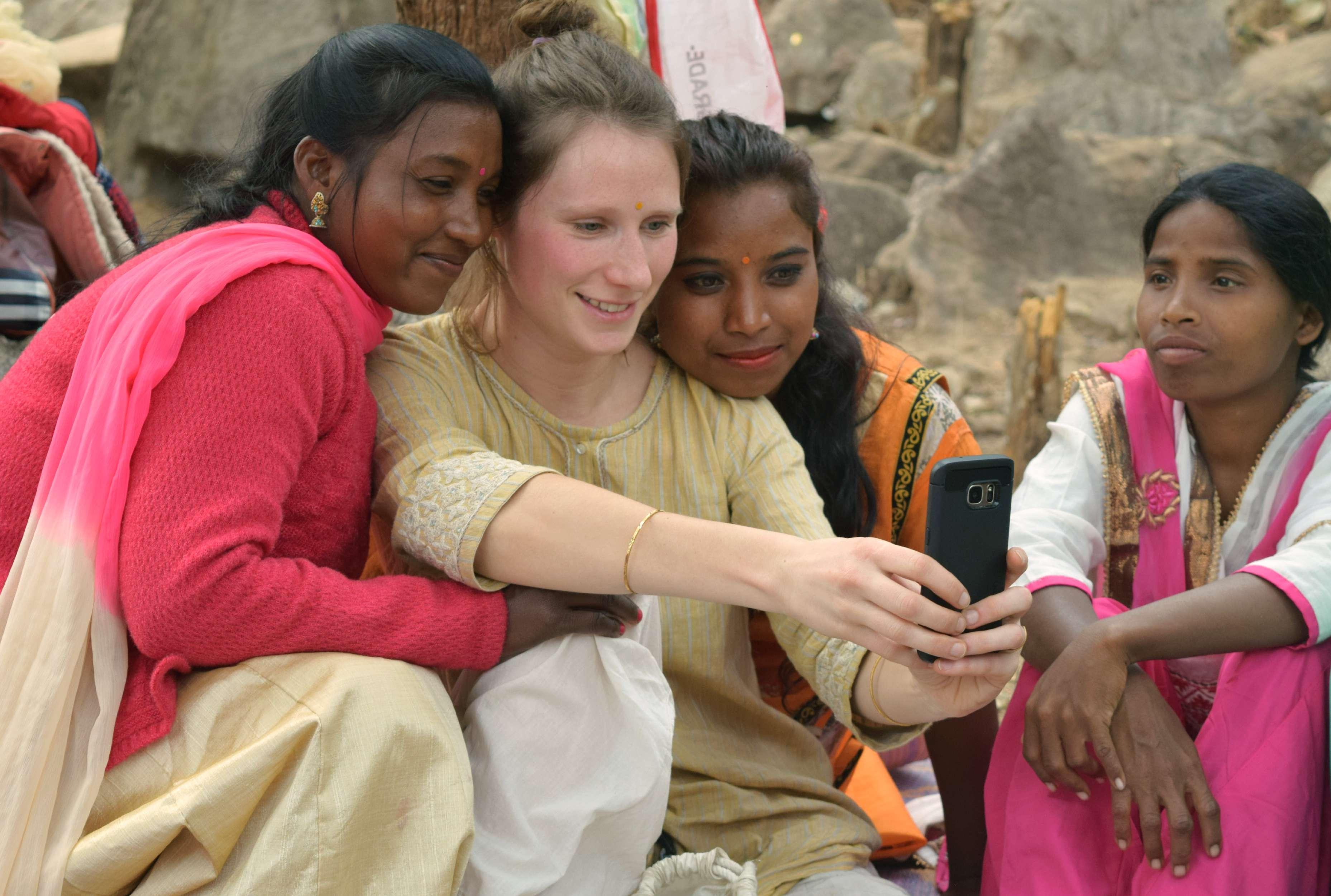
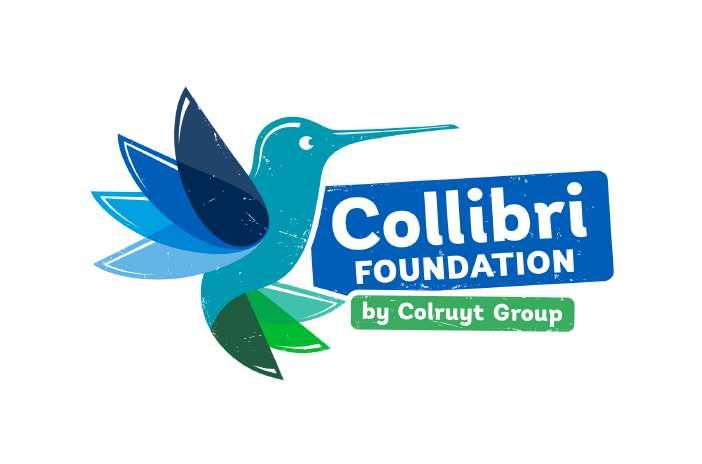
Stichting Huize Buitenveldert



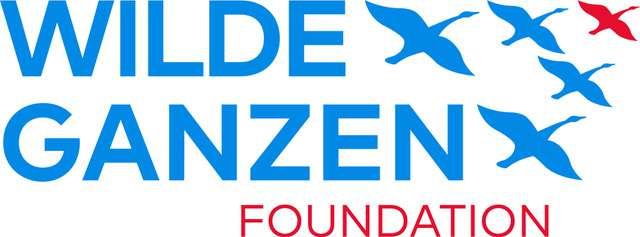
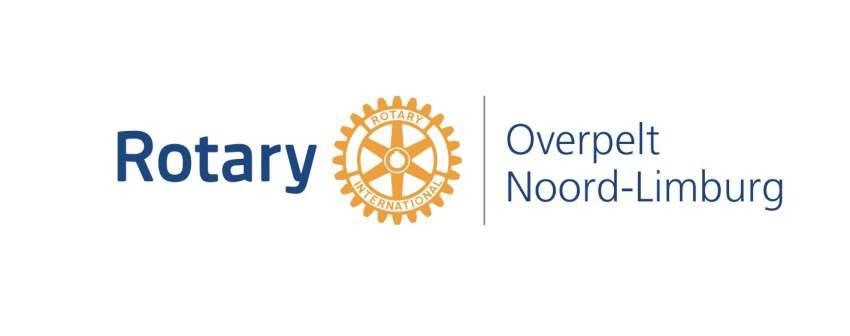
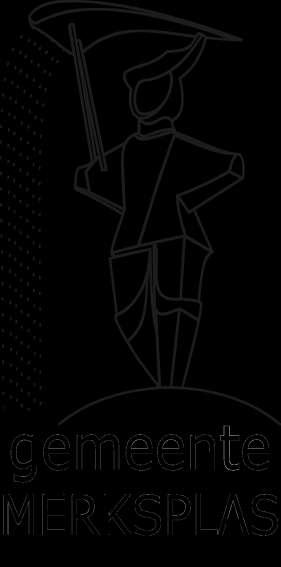
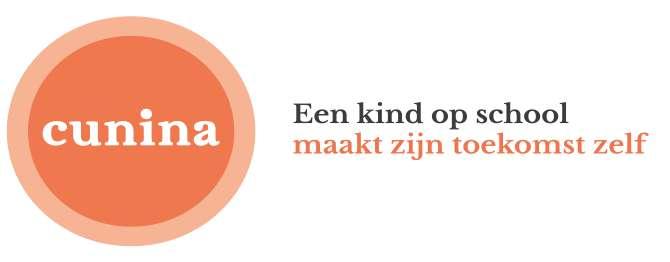




With support from the Collibri Fund, BRIGHT fund and Business Partnership Facility, managed by the King Baudouin Foundation Also thanks to the many private sponsors making a contribution to Solid








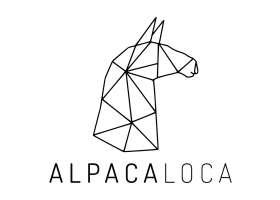








Clients Solid Food



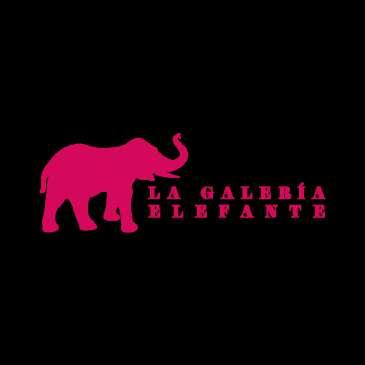



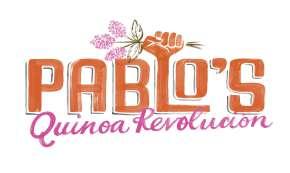
Shops and selling points where Solid Crafts ready made fashion and / or interior products are sold
A line story
Amabile concept store
Atelier Van Gastel
Bohome Vintage
Bramigk & Breer
Colombian boho
Couleur Locale
Damme Florals
De Bus
De Houten Kruik
DF Shop
Duka Moodstore
Ensemble
Escape Fais à ta mode
Frankly
Gabelmann
Gero Wonen
Gina Concept Store
Glück
Goûts et Couleurs
Gruun
Haarlem House
Harmony
Harvest Club
Ilo
Just Hazel
Just Julia
Jüttu
Kunst * Bunch
L’Amuzette
La Maison DC
La petite annette
Le MuZée de L'Amuzette
Let's Create
Lili Pont
Little Green stories
Lots of Lili
Lovely Marie
Lulu
Madame Panier
Mahome
Mambo baskets
Mamuli
Mini Markt
Mira
Monique Stam
Mouton Sauvage
Nathalie Vleeschouwer
Nur Conceptstore
Objet Trouvé
Paulette in t stad
Philippo rozen
Plek shop
Podjo
Renée
Rewind
Rose Avril
Schoenen Cools
Schwesterherz
Shood
Slow Cabins
Soshun
t Labo
The Golden House
The Wanderful
Tutamanta
Unterhaltung Lieblingsstuecke
Van Eccelpoel - De Veranda
Wadapartja
Wildernis
Winkel van Sinkel
Wondergreen
Zelda & Zorro
The Beach House Javea
The Coronavirus pandemic had a major impact on the majority of the Peruvian population in terms of work, food, health and education Thousands of people lost their jobs due to the confinement, as 70% of the Peruvian population works informally 100% of the teenage mothers were left unemployed With no work or reduced wages, Peruvians found it difficult to buy basic necessities, even though the Peruvian government provided food vouchers and food support, it was not enough None of the teenage mothers received this aid, as they are minors In the health sector, COVID-19 revealed the critical situation of the Peruvian health system, with a lack of adequate care for cases of COVID-19, lack of beds, oxygen, medicines, among others Making it difficult for children to get their vaccinations and for parents to acces family planning Preventive practices such as the use of masks and hygiene practices were barely imbedded in day to day lives, and also had their limitations; thousands of Peruvians do not have the resources to buy quality masks, soap, alcohol, etc In terms of education, all child care services remained closed in 2020 and education was only given online, causing many difficulties for the mayority of peruvians Due to a lack of equipment and technology (internet, laptop, printer, etc ) thousands of students, mostly in rural areas, are affected in their learning With people falling back into poverty and being isolated from their social network, numbers of violence went up and cases of (sexual) abuse were worse than ever Two international foundations, Wilde Ganzen (Holland) and the Buitenveldert Foundation (Holland), together with many smaller sponsors supported the projects in Peru with resources to cover the most urgent needs of the teenage mothers and knitters They covered part of the salary of the (EMMA) team and the acquisition of food packages, mobile phones, hygiene, school and toy kits This support for those vulnerable populations, yielded positive results and was essential Many other local organizations helped with food parcels, clothes, nappies, school supplies and logistics 68 children of knitters and teenage mothers - have an individual sponsor covering their education expenses, through the organization Cunina (Belgium) 3 independent people support a teenage mother, with education and food expenses
Teenage mothers
teenage mothers received an emergency food package 222 71
111 hygiene kits, school packages & toy kits were distributed
mobile phones went to teenage mothers and 102 teenage mothers got a monthly internet recharge for 7 months
91
teenage mothers received financial support of 100 soles (€23) from Solid Peru
knitters received an emergency food package 207
knitters received a smartphone, with a monthly internet recharge
75% of the knitters received monetary support from the Peruvian government through an occasional national grant worth S/ 380 (€85), for those most vulnerable
Knitters 32
knitters living in extreme poverty received an extra emergency bonus of 150 soles (€35) from Manta, to relieve the most urgent needs during quarantine
In India, the most vulnerable artisans also received an emergency aid from the social fund, the company has, during lockdown COVID-19 impacted India heavily, but didn't reach the communities of the artisans


Donations for 45% tax deductible
Solid guarantees your gift will be spent 100% on our projects Solid covers all the overhead costs in Belgium Professional follow-up of each of our projects is secured
More information: https://solidinternational be/support or mail to Inge Overmeer: inge@solidinternational be
Koning Boudewijnstichting Brederodestraat 21
B-1000 Brussel
Bankaccount: IBAN: BE10 0000 0000 0404
BIC: BPOTBEB1
0415 580 365 RPR Brussel
BTW : BE0415580365
Reference to use: ***020/1130/00015***
At Solid we dedicate ourselves every day to help others, but that is only possible thanks to your financial support Support us with € 40 or more and enjoy this tax benefit!
Every donation makes a difference, now more than ever
Always dreamed of helping a hand in an international organization, striving to do something about poverty? Do you speak Spanish and/or English and do you have experience in management, agriculture, textile, education, psychology or social work? Some free time to help our Belgian team or interested to work as a volunteer (6 months – 1 year) abroad or do you have a thesis subject linked to one of our working fields?
Fill in the form on our website and we will contact you as soon as possible: https://solidinternational be/volunteers
When I moved to Gent, Solid presented itself as a caring, straightforward, and impactful organization which would enable me to do what I was looking for Soon after starting my volunteering with Solid, I realized with what empathy everyone is engaged in their projects. I help the team of Solid once a week, with what is needed at that moment; researching, writing, reviewing and meetings. I feel that my work is valued and appreciated It is the perfect opportunity to gain experience besides my studies and it is inspiring to know that there is direct contact between the different teams across the globe (...). This is how international cooperation should look like. I am grateful to be able to be part of something that brings joy and support to people around the world!
- Theresa Adams -
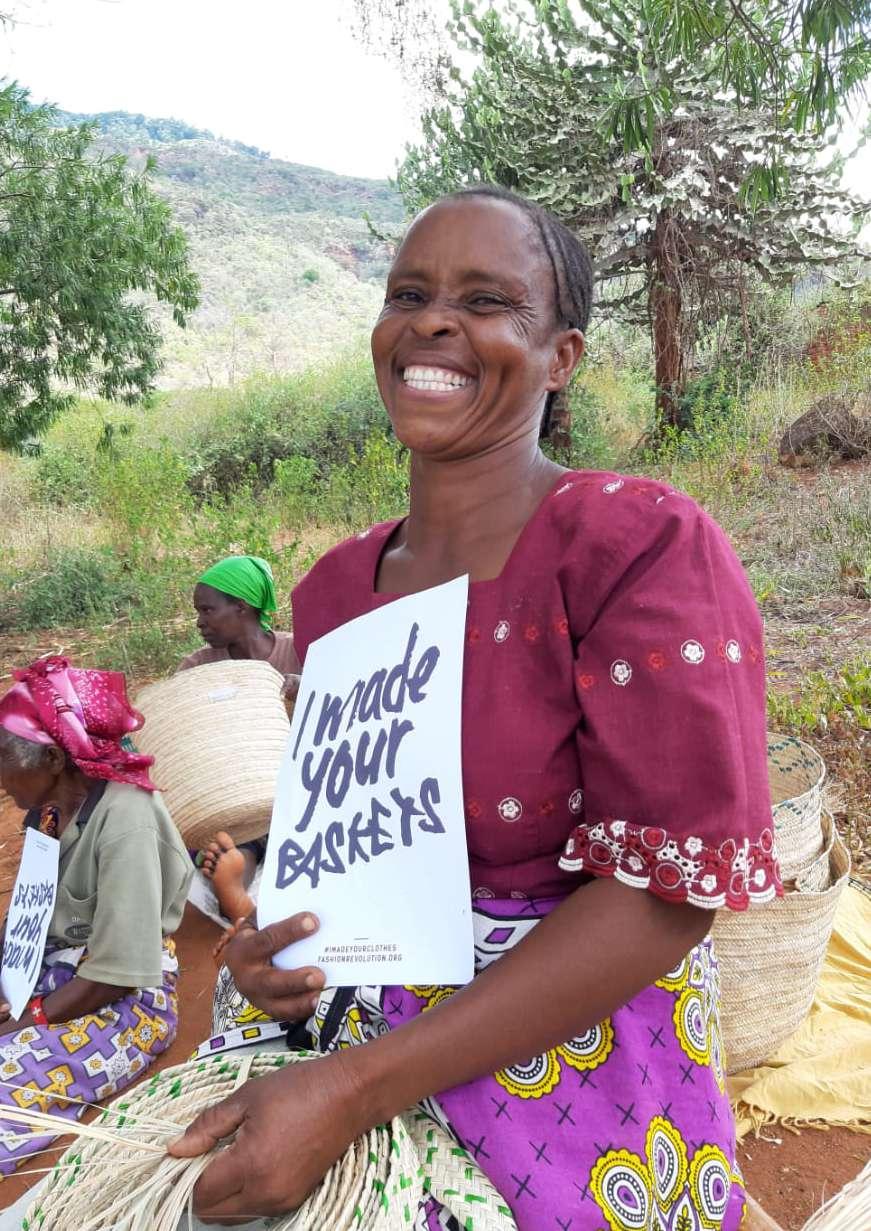

Designed by:
Joëlle Heirbaut & Hannelie Somers
The numbers presented in the graphs are approximations
www solidinternational be
Follow us on Instagram: @solid crafts and @solid international Facebook: @solidbombyx
Responsible publisher: Solid vzw, Kortrijksesteenweg 697, 9000 Ghent (Belgium) - hello@solidinternational be